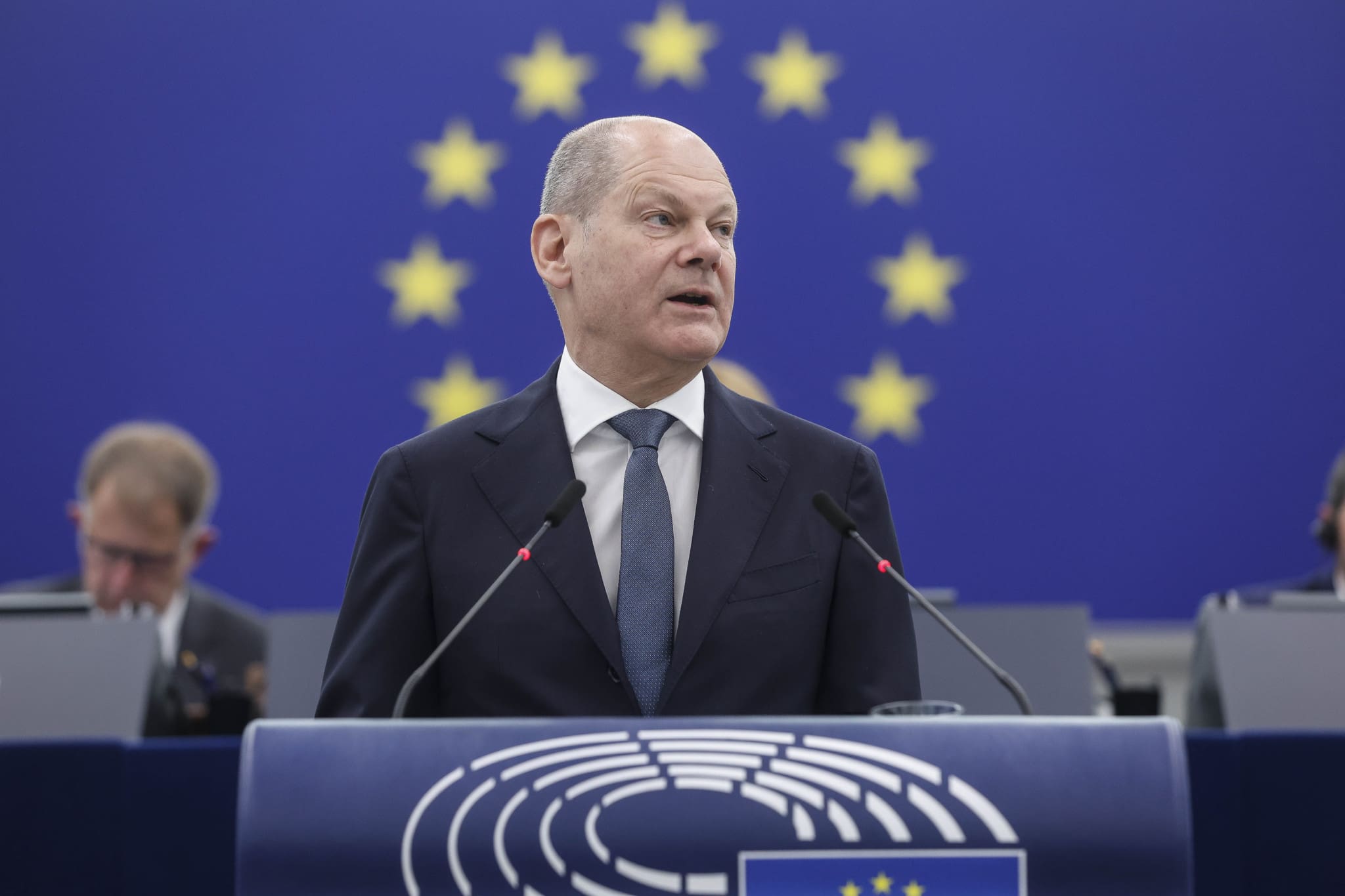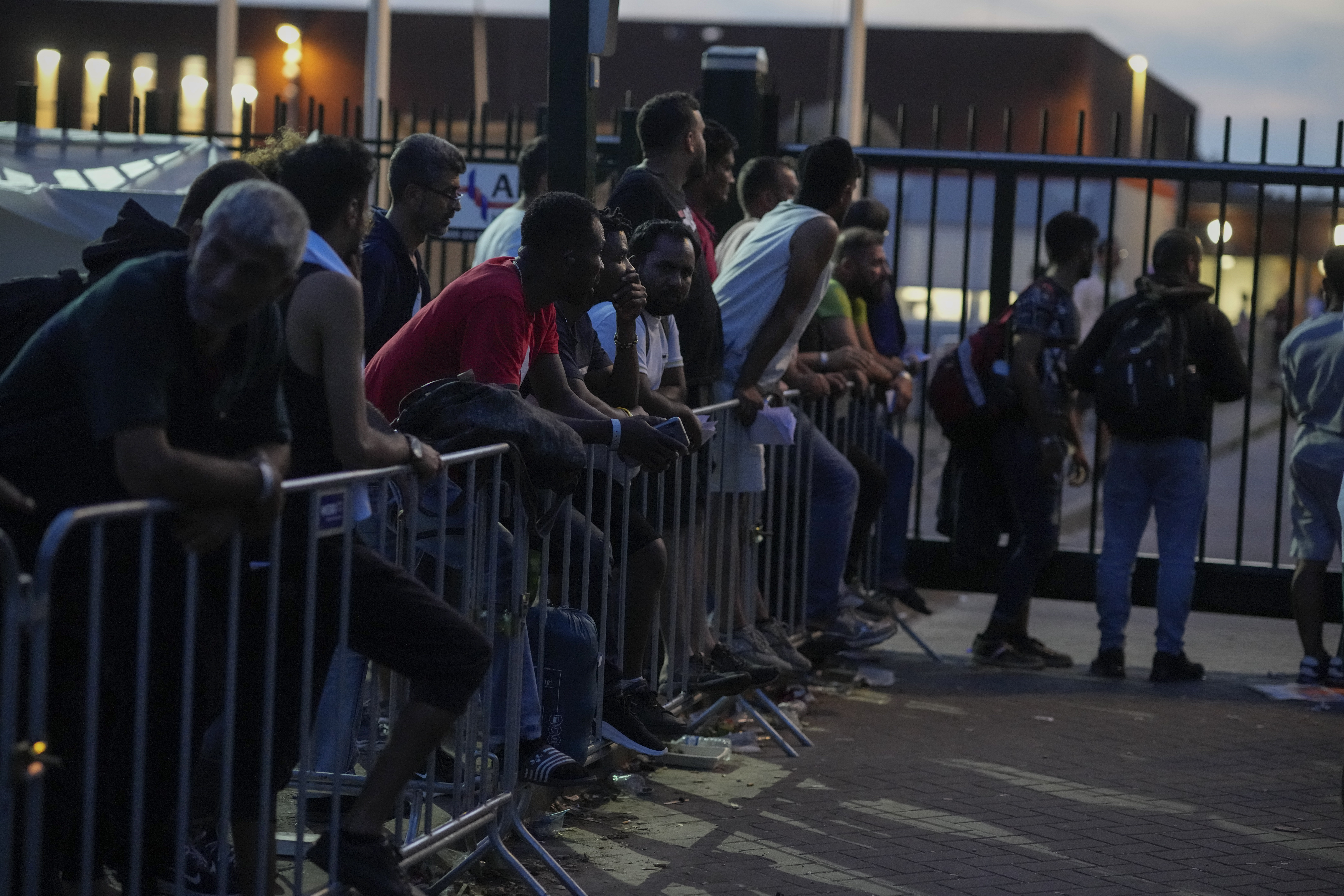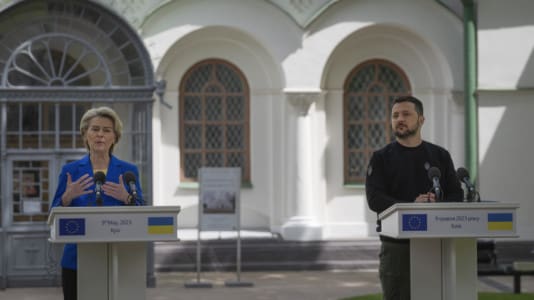A minor political landslide is taking place in Germany this week. First, the Social Democrat (SPD) Chancellor Olaf Scholz will host the leaders of the 16 German states in a migration crisis meeting, who this time, regardless of party affiliation, from Christian Socialist Union politicians from Bavaria to left-wing Thuringia, are united in asking the Berlin federal government for the same thing: fewer migrants and more money.
Germany’s left-wing government, led by Scholz, has overseen what critics say is a controlled demolition of the country through mass migration, and now, that same government refuses to pay for it.
In order to meet Germany’s constitutional debt limit, the government canceled the previous system of funding for migrants, under which member states subsidized the regions according to the number of migrants they received. Berlin’s budget now pays a flat rate to all, regardless of the number of refugees the regions are responsible for. This has led to a situation in which, according to Hendrik Wüst, prime minister of North Rhine-Westphalia, “the federal government no longer pays 20 percent of the costs for the Länder and municipalities.”
[pp id=75339]
This is despite the fact that Germany’s immigration policy is shaped by the federal government, which is calling for even more migrants. This means the local governments have no say over how many refugees arrive, but are nonetheless still responsible for their care.
The prime ministers of the 16 German states, led by Daniel Günther, head of government in Schleswig-Holstein, are therefore demanding that Berlin not only reinstate funding in proportion to the number of refugees but also reduce the number of arrivals.
[pp id=61305]
The seriousness of the situation is shown by the fact that the state prime ministers in the various coalitions have all backed a single proposal and are united in their approach to the federal government, which is led by the social democratic-green-liberal coalition. In many cases, this means the local and state governments are openly against their party colleagues at the federal level.
In their proposal, leaked to the German media, they demand nothing less than that, in addition to proportional funding, the federal government should reimburse the full cost of housing and heating for migrants and provide a per-capita allowance for the provision of refugee-compliant care for arrivals.
In addition, Berlin would also be called to account for the costs of integration and the costs of migrant minors arriving without parents.
[pp id=61964]
The official sums already being talked about are enormous, totaling over €36 billion in 2023 alone. However, hidden costs related to crowded schools, higher housing prices, soaring medical costs, more traffic, and increased crime are also weighing on Germany’s sociopolitical structures.
Meanwhile, the parties of the federal government are sending contradictory messages. The Social Democrats and the Liberals, who also run the finance ministry, say there will be no money: SPD leader Saskia Esken stresses that “we have a duty to respect the debt brake, so we want to have a constitutional budget by 2024 that also respects the debt brake.”
The Greens, who are sworn enemies of the debt brake and would like to pursue a much looser fiscal policy, are showing a willingness to compromise. The federal government, unlike the member states, is therefore not united in the least.
Prime ministers are not particularly impressed by the reference to the debt brake.
“Although we fully understand the difficulties of fiscal policy in times of shrinking fiscal space, the federal government should start solving its fiscal problems through its own spending, instead of conducting a sham debate and claiming that the provinces are responsible for the fiscal problems,” the provincial premiers wrote in a joint statement leaked to the public media.





